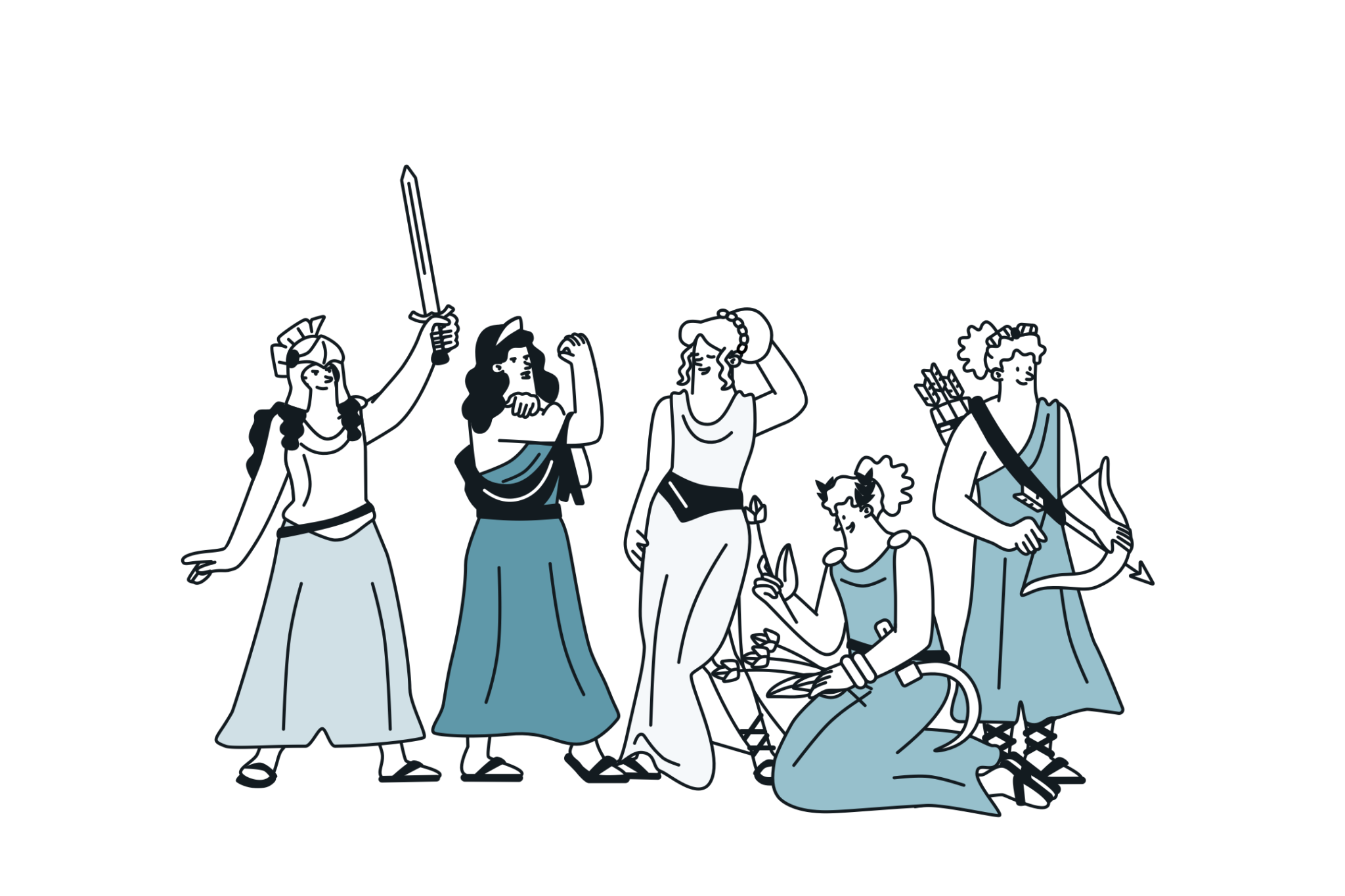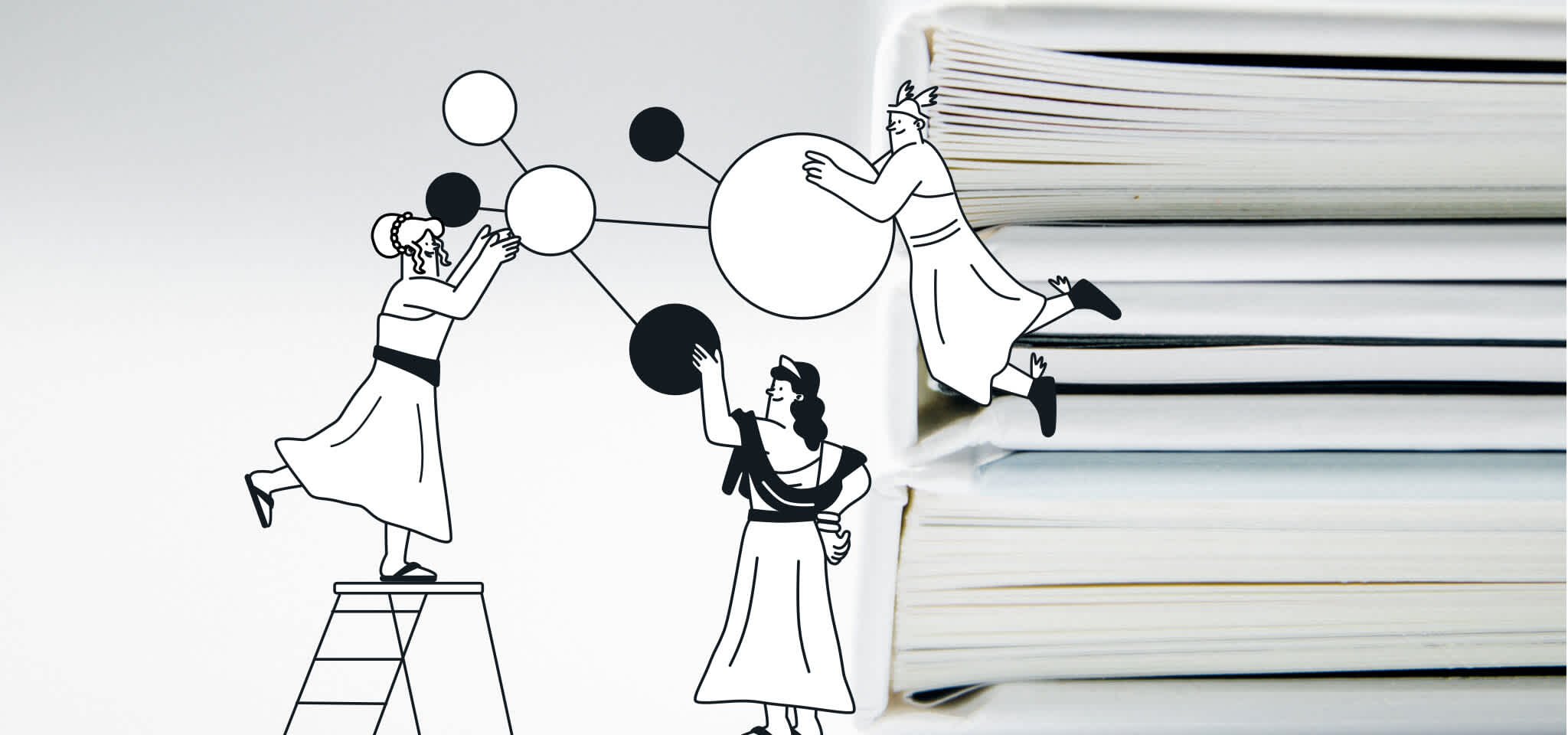Company
International Women's Day: How Mailjet's female leaders break the bias
It's International Women's Day 2022 and women everywhere are challenging expectations, misconceptions, and their own limitations.

PUBLISHED ON
Today is so much more than another Tuesday – it’s International Women’s Day! It’s a day to celebrate all the accomplishments of women across the globe (big or small) and to push for more and better. At every moment, women around the world are challenging expectations, misconceptions, and their own limitations at work and outside work – and the amazing women of Sinch Mailjet are no different.
To celebrate International Women’s Day 2022, discover how Sinch Mailjet’s female leaders #BreakTheBias and contribute to a more diverse and inclusive workplace.
Table of contents
Building workplaces where women can thrive
Being a woman has never been easy, but the modern world is throwing women its own set of curveballs.
So what does it really mean to support women? First, it takes understanding that we can’t talk about women at work without acknowledging the circumstances and barriers they face in their everyday lives, that are keeping them from entering the workforce.
Not understanding the different layers that contribute to that disparity around the world can result in unrealistic expectations and a struggle to support their needs both at work and at home.
On International Women’s Day, I want to focus on two terms or buzzwords that are often used in the workplace by women in leadership positions: ‘lean in’ and ‘work-life balance’. They are both shiny terms that female leaders continue to throw around, but in reality, those are just traps that set you up for failure. It’s not always enough or easy to ‘lean in’. The same goes for ‘work-life balance.’ Both imply that if a woman works hard enough and asserts herself enough, she can thrive at home and at work. Both of these phrases inaccurately imply that succeeding is solely the responsibility of individual women and ignores the confines and barriers that societal structures can place around them.
Kate Nowrouzi VP, Deliverability & Product Strategy, Sinch Mailjet and Sinch Mailgun
These circumstances play an even bigger role in the case of working mothers. Care responsibilities - traditionally undertaken by mothers – often force women to choose between two roles, and it takes empathy and proactive policies to ensure that doesn’t continue to happen.
Paid parental leave policies and flexibility with childcare or school schedules are critical for working mothers. There is this perception that women either have to choose a career or children. It doesn’t have to be that way, but finding a balance between work and children has been especially hard during the pandemic. When you are working, it is easy to feel like a terrible mother. When you’re with your children, it’s easy to feel like a horrible worker. Acknowledging that people are feeling this way and treating them as human is the best thing Mailjet and Mailgun have done throughout the pandemic, and I hope many others will follow suit.
Nicole Jacobson VP of Marketing, Sinch Mailjet and Sinch Mailgun
Increasing representation in the tech industry
The thing with women is that there are a lot of us… Precisely, 3,937,854,054 females as of 31 December 2021. That’s around 49.5% of the world’s population. And yet, there are still too many areas where women are misrepresented or barely present.
Women make up 39% of the total workforce, but only 25% of the tech workforce is comprised of women. And that percentage has been virtually immovable during the last decade.
Representation matters. To change the gender distribution in the tech world, we need to pave the way for girls, challenge stereotypes and provide opportunities for young women to see that they too belong in the tech industry.
On International Women’s Day, we as a society must challenge the notion that the tech industry and other STEM fields are a ‘man’s world.’ Young women who are still in school and determining what the path ahead looks like must be reminded that they are more than capable of becoming excellent engineers, developers, and data scientists. To make this happen, universities and tech companies must open up education and job opportunities for women to pave the way for a career in tech.
Women should feel more empowered to break glass ceilings and challenge themselves to push past stereotypes. With gender disparities in the tech industry being more of an open conversation now than in the past, it is now up to companies to foster an environment where women are welcome and supported. By making a concerted effort to combat unconscious biases that women should pursue other careers and opening up opportunities for girls and young women, we could be having a very different conversation in International Women’s Days to come.
Darine Fayed General Counsel and DPO, Sinch Mailjet and Sinch Mailgun

Encouraging diversity in leadership
Diversity is a main driver of innovation. You don’t need to take our word for it – a 2017 BGC study revealed that diverse companies with strong representation both within the workforce and leadership teams are more innovative, adaptable, and in touch with their customers’ needs.
But actively encouraging diversity in leadership also contributes to creating a safer, more inclusive workplace in which people of all genders, ethnicities, and backgrounds feel at home and empowered to thrive – and women leading male-dominated teams play a key role in this switch in mentality.
An ideal leadership team is more of a diversity of thought than anything else. For myself and the rest of the team, we want to challenge each other to allow for healthy debate and a positive context to expand our boundaries to get the best outcome for our company. And we want these challenges to expand beyond our walls to reach the rest of the tech world as well. This variety of opinions and ideas is extremely important, as uncovering and empowering them make us better leaders and an overall better organization from the top down.
As I reflect on my own career path, I realized that I’ve never had a female boss, and all of my formal mentors have been male. However, in my current role, the teams that report to me are all male, flipping that dynamic on its head. To me, this helps show the reality that just as women benefit from male mentors and allies, men also benefit greatly from the mentorship, leadership, and sponsorship of women. If we all work together to encourage inclusivity and acceptance in the technology space and beyond, more and more people will feel welcome, and companies will be able to find the best talent.
Heather Arrington VP of Support, Sinch Mailjet and Sinch Mailgun
Providing opportunities through mentoring
Yes, having powerful representation matters to drive more women into the tech world. But providing opportunities for women to grow and succeed is just as important to compensate for the additional barriers they face while growing up and entering the workforce.
Mentorships are powerful ways in which women (and men) can support each other: They build professional networks, create more opportunities for women and women of color, open doors to leadership, and encourage entrepreneurship.
Mentorship is critical in encouraging growth and confidence in one’s job, and I’ve made a concerted effort to guide and advise newcomers throughout my career -- of all genders and backgrounds. These types of mentorships are something I highly recommend women early in their career to have, in addition to a ‘sponsor’.
Most think ‘mentors’ and ‘sponsors’ are interchangeable when the reality is that they are somehow different. A mentor can be anyone inside or outside of your company that you look to for advice. They guide you on how to resolve conflict and challenges at the workplace. A sponsor is someone that is inside the organization that goes out of their way to pave the way for you.
In my 25 years of experience, I still have both mentors and sponsors to this day, and I would never make any major career decisions without them. I aspire to be there for others in the same way they’ve been there for me, and I hope after reading this, you may do the same for promising new talent.
Kate Nowrouzi, VP of Deliverability & Product Strategy, Sinch Mailjet and Sinch Mailgun
Empowering women to trust their own abilities
Over the last few years, the rise of the “imposter syndrome” has had everyone talking about something that has actually been around for much longer: A feeling of self-doubt that has caused many of us to question at some point whether we’re really suited for a particular role or capable of taking that next step.
If you’ve ever felt this way, you’re not alone. This phenomenon can actually affect anyone regardless of their gender, but the lack of role models and representation means that women, and especially women of color, are more likely to suffer from this loss of confidence and sense of not belonging.
Women have the power to choose differently and courageously, despite facing many challenges professionally and at home. It can be easy to forget that we are in control of what comes next, but this year’s theme is a strong reminder to make intentional choices for who we want to be and what we are capable of.
The biggest challenge I have faced in choosing to take on a leadership role was more of an internal struggle. I thought I was not good enough, and I lacked confidence. My advice to other women is to know your domain and understand the product you are working on inside and out. Choose to challenge misperceptions of your expertise and your technical ability, and don’t be intimidated. By letting go of perfectionism, I advanced from leading a team of two to a team of 20. At Mailjet and Mailgun, our leadership team is currently more than 40% female, and I think having that female representation is the most surefire way for a company to create an inclusive environment. It brings female voices to the table and advocates for programs and policies that support women.
Nicole Jacobson, VP of Marketing, Sinch Mailjet and Sinch Mailgun
Combating gender disparity takes more than one day
A recent World Economic Forum study revealed that gender parity will not be attained for 137 years. That’s a long time from now, and, honestly, it can feel a little discouraging. But to get there, we need to keep breaking the bias. What we do every day to foster a more inclusive and diverse society is more important than what we do today, and at Pathwire, a Sinch company, we don’t want our support to be limited to just one day a year.
With great power comes great responsibility, and we’re holding ourselves accountable. Keep an eye on our Mailjet and Mailgun blogs to learn more about what we’re doing and how we continue to #BreakTheBias throughout the rest of the year.








